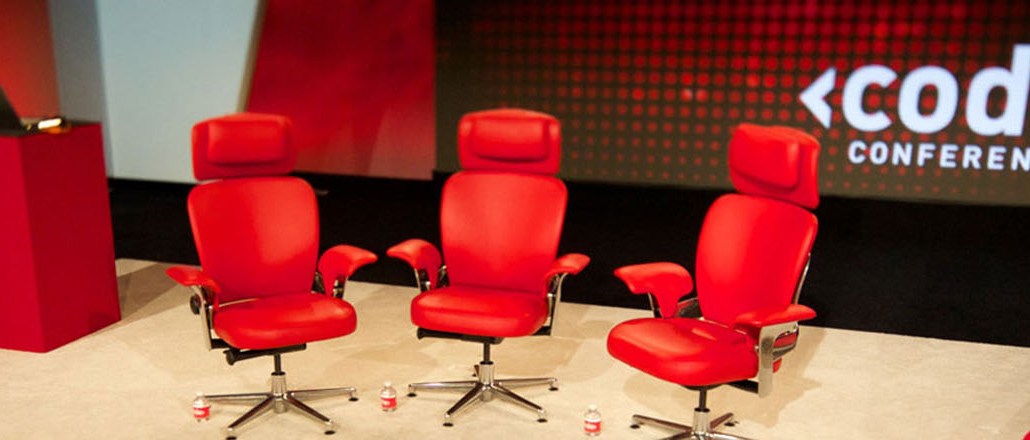
It’s hard out there for an independent news site.
On Tuesday, Recode, the tech business site founded by media vets Walt Mossberg and Kara Swisher, inked a deal to sell to Vox Media for an undisclosed amount in an all-stock deal. While both sides framed the move as a success, it’s also been seen as premature capitulation for the Recode founders, who handed over the keys just 18 months after the site’s launch.
Mossberg and Swisher were a Recode conference Thursday and weren’t immediately available for comment. But in coverage of the deal, Swisher spoke to Recode’s challenges, telling The New York Times: “It’s not a secret that being a smaller fish is really hard.”
This much is clear: Translating journalism skills to running a startup is hard, as those on the front line will attest. Other media executives note that while journalists are heeding the call of the Silicon Valley startup life, they’re finding that running media companies is a lot harder and less glamorous than writing about them. “Being good at covering other people’s businesses doesn’t mean you can easily create your own,” said Skift CEO Rafat Ali. “Knowing things and having relationships with people could give you an advantage, but it also gives you a false sense of competency.”
While journalistic chops don’t necessarily overlap with the skills needed to run a media company, would-be journalists-turned-media moguls haven’t been deterred. Former Wall Street Journal reporter Jessica Lessin started subscription tech site The Information in 2013, for example, while ex-newspaper reporter Nick White struck out on his own with The Daily Dot back in 2011. The “journalist as entrepreneur” has a mixed track record, though. One of the most notable recent examples in the success column is the Gawker empire, founded by former financial journalist Nick Denton. On the other hand, Daily Dish founder Andrew Sullivan shuttered his site in January after only a year.
But the fact is that growing a media business is still as hard as it’s ever been — if not harder, considering the flux the industry finds itself in. For Mossberg and Swisher, who built Recode’s staff to 44 people, running a company required getting into the unsexy nitty-gritty of managing a business, which includes not only running editorial and events, but marketing, human resources and sales as well.
“A digital media CEO has only one job — to hire talented editors, engineers, and sellers — and to ensure that none of those three departments gains even the slightest political hegemony over the others,” said Bustle founder Bryan Goldberg. “I can’t speak for Recode specifically, but any media founder who comes from one of those three backgrounds is immediately challenged in that regard.”
One of the bigger, more fraught tasks is pleasing investors. In 2013, Recode raised an undisclosed amount from Comcast-owned NBCUniversal News Group and Windsor Media, which, like most investors, shelled out the cash with the expectation of a return on their investment. Recode, which comScore said gets 1.5 million unique visitors a month over a year later, may not have been growing fast enough, which could have pressured it to find an exit.
“They were stuck in the middle, neither small enough to be highly profitable nor large enough to have the scale to compete with the majors. They were smart enough to understand that,” said Kreisky Media Consultancy founder Peter Kreisky, who compared Recode to GigaOm, which attempted to grow too quickly before imploding last month.
All of these concerns go away now when the site is been folded into Vox Media, which will handle the bulk of the site’s business and administrative concerns, all the while boosting its own prospects. Kreisky called it “the perfect strategy” for both sides, particularly Recode.
“Why would Recode want to spend gobs of money on an ad-ops team, accountants, sales support, research licenses, etcetera, when Vox can provide all of that for almost zero marginal cost?” said Bustle’s Goldberg. “Scale has always mattered to media companies, and it is more important than ever.”
Photo courtesy of Recode’s Facebook page.
More in Media

Media Briefing: ‘Cloudflare is locking the door’: Publishers celebrate victory against AI bot crawlers
After years of miserably watching their content get ransacked for free by millions of unidentified AI bot crawlers, publishers were finally thrown a viable lifeline.

Vogue faces new headwinds as Anna Wintour — who agency execs say made ad dollars flow — shifts focus
Anna Wintour’s successor at Vogue will have to overcome the myriad of challenges facing fashion media and the digital publishing ecosystem.

Here are the biggest misconceptions about AI content scraping
An increase in bots scraping content from publishers’ sites represents a huge threat to their businesses. But scraping for AI training and scraping for real-time outputs present different challenges and opportunities.





